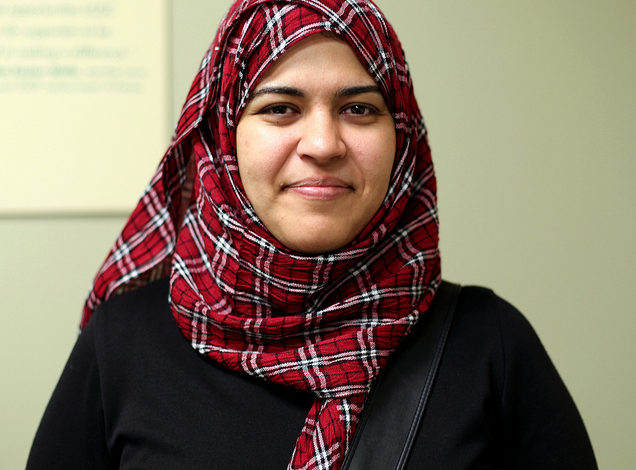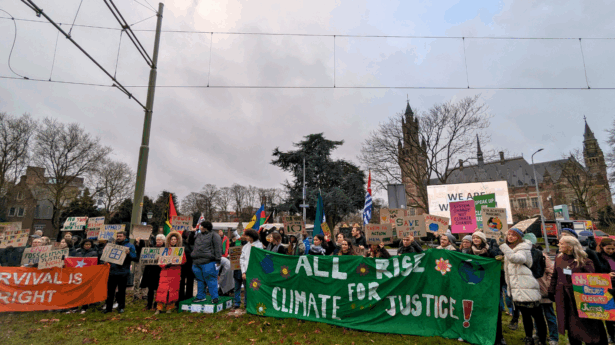The Unitarian Universalist Service Committee advances human rights through grassroots collaborations.
Coming to the Streets of Egypt

January 24, 2013
Transitional justice for the people
Originally published in the Winter/Spring 2013 issue of Rights Now
Revolution is hard, messy, and fractious. Transition from dictatorship to democracy inevitably gives rise to conflict between any number of groups. But democracy, even with its own challenges, is worth it. Dalia Ziada, executive director of the Ibn Khaldun Center for Development (IKCD), a UUSC partner in Cairo, sees firsthand how the people who stood in Tahrir Square are experiencing this every day. As Egypt moves forward into democracy, UUSC is working with IKCD to foster a sense of reconciliation and transitional justice among all Egyptians — and doing so in some very creative ways.
On the ground in Egypt, Ziada and IKCD are concentrating on four key areas of conflict. Reconciliation efforts are focusing on tensions between the following:
- The people and the police
- The Muslim majority and religious minorities
- Revolutionaries and members of the old regime
- Nongovernmental organizations and the government
As director of one of the oldest human rights organizations in the Middle East, Ziada is acutely aware of the hostility between government and civil society. “We hope now, as we are turning into a democracy, that the relationship between the government and the people — they should be completing each other, not competing against one another,” she says. Ziada hopes to encourage empathy, understanding, and partnership across the board. “For the interest of Egypt, everyone should be involved in the transformation,” she adds.
To achieve that, UUSC and IKCD have embarked on innovative grassroots field work in the form of the One Hand project. “It’s very important for civil society now to find creative ways to do things. Now we are a semi-democracy; we are no longer under a dictatorship. So the techniques and the tools and the targets should be different.”
Accordingly, IKCD will be using street theater to communicate with people, educate them about transitional justice, and garner their ideas and feedback. Scripts for the street performances address religious conflict, human rights, and more. “People will learn, will have a vision, and will help us find the solution,” Ziada explains.
Youth are critical to this process. They took the lead in the revolution, and they are indispensable to this transition phase. In addition to the One Hand project, IKCD is working on an academy for turning youth revolutionaries into politicians. “Youth are the future,” Ziada says. “When we see the young people who made the 2011 revolution in the government in five years, ten years, that will be the real success of the revolution.”
The work of reconciliation is essential to a healthy future for post-revolution Egypt. “I think it is the vision of all young people, of all young revolutionaries, to see Egypt as a liberal democracy five years from now,” Ziada shares. “By liberal democracy, I don’t mean liberalism as a political ideology, but I mean free democracy — real democracy that comes with civil rights, with individual freedom, with respect for human rights and women’s rights, with proper empowerment of all people.” Together IKCD and UUSC are paving the way from unrest and revolution to understanding and justice.

